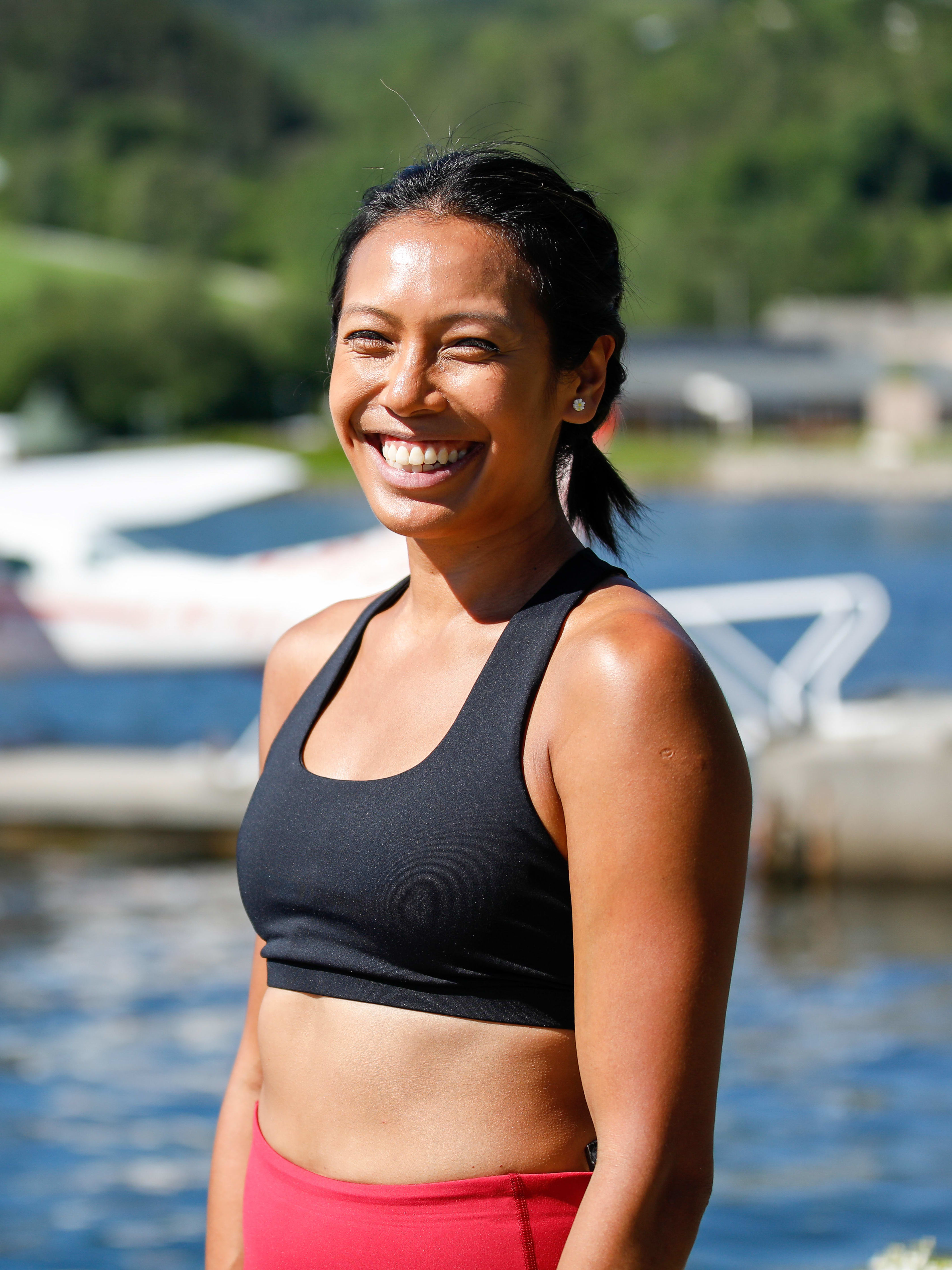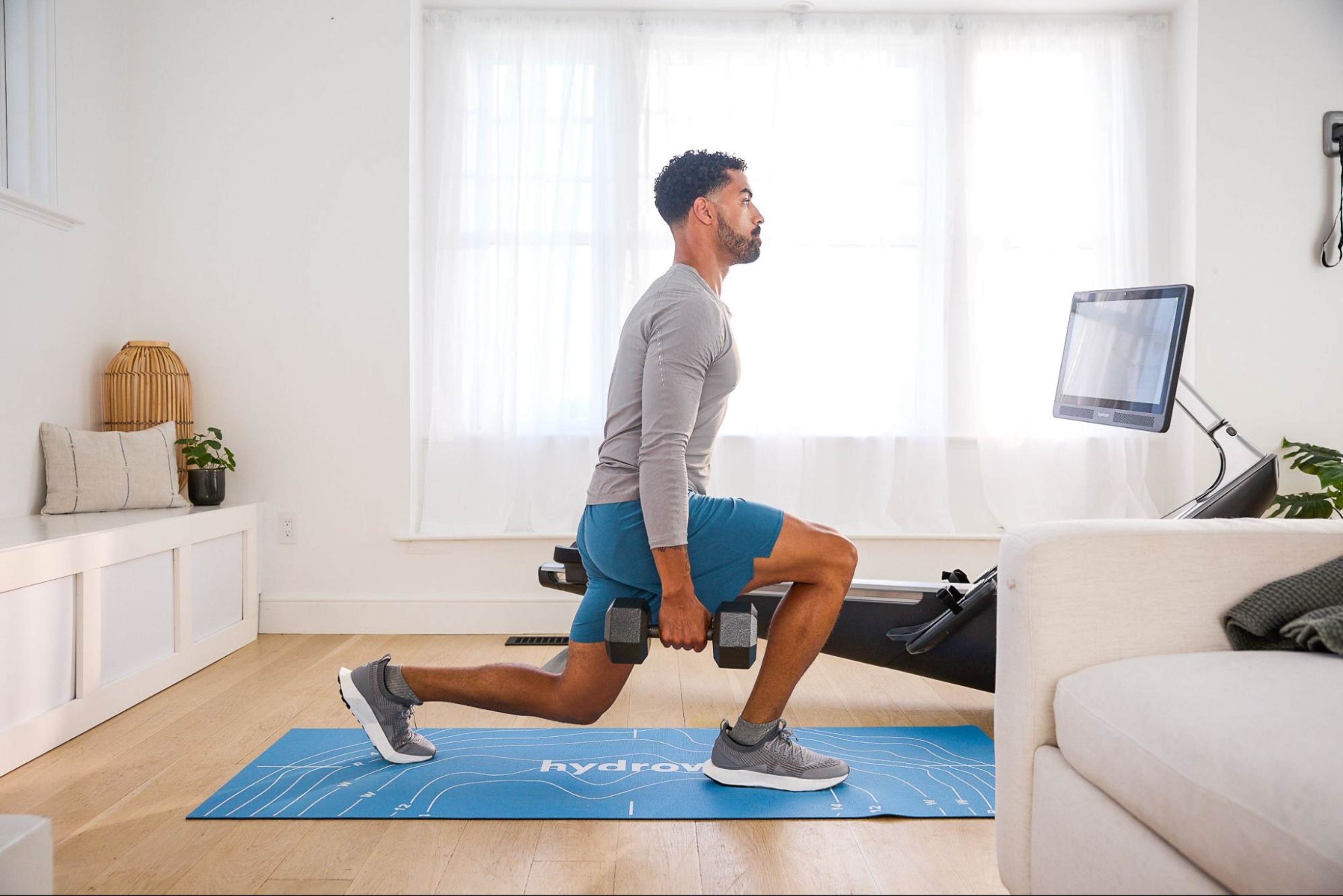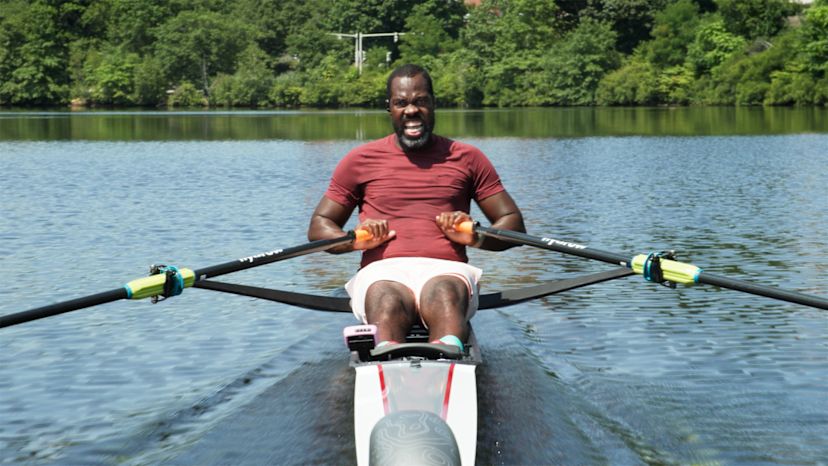Starting a Fitness Routine? 20 Different Types of Exercise to Consider

Starting a fitness routine is a smart move, as engaging in regular exercise can boost your mental health and improve your strength, cardiovascular fitness, and mobility. Exercise can also lower your risk of heart disease, cancer, diabetes and many other conditions.
However, if you’re new to working out, you may be wondering where to start and the different types of exercise that are available to you.
Not every type of exercise is right for everyone, but trying different things helps you learn what you like and adds variety to your routine. If you want to broaden your fitness horizon, check out our list of the 20 best exercises to try if you’re starting a fitness routine, including:
Let's jump in!
1. Walking and hiking
Walking is one of the easiest and most accessible exercise options out there. It takes a minimal financial investment—all you need is a good pair of walking shoes or hiking boots! You can walk in parks, on trails, on sidewalks, or on a treadmill, giving you some built-in variety to keep your workouts fun and interesting.
Walking is also generally lower-intensity, making it perfect for beginner exercisers or those recovering from injury or illness.
If you plan to walk or hike on trails, make sure you choose a trail suitable to your ability.
2. Jogging and running
Similar to walking, jogging and running are very accessible and can be done on sidewalks, trails, paths, tracks, or treadmills. With these workouts, you’ll produce a higher calorie burn. To get started:
Get properly fitted for running shoes.
Start with a run-walk program.
Run with a buddy and wear bright, reflective clothing.
Do note that running is more high-impact than walking, which means an increased injury risk. Start slowly to avoid hurting yourself.
3. Cycling
Cycling either indoors or outdoors for a low-impact, cardio workout. An indoor stationary bike is easy to use and really only requires maintenance and upkeep after your initial investment. Outdoor cycling, on the other hand, requires a little more prep and practice. The best place to start is a reputable bike shop that can help you choose a bike that fits you.
Whether you’re cycling indoors or outdoors, adjusting your bike for a proper fit is vital to your comfort and enjoyment.
Some equipment to consider for an outdoor cycling:
Properly fitted helmet
Bike lock
Lights or reflectors
Cycling shoes
4. Swimming
Swimming is easy on your joints, works your whole body, and is suitable for all fitness levels. If you’re new to swimming as a workout, stick to the basic strokes—freestyle, backstroke, breaststroke, or butterfly. Or go even simpler and start with a kickboard. For safety, always swim in a pool with a lifeguard.
Besides a bathing suit, a few things you may want are:
Swim cap
Goggles
Waterproof headphones
5. Rowing
Rowing is another low-impact, full-body workout easily adapted for all fitness levels. It also gives you a great bang for your buck, working 86% of your body’s muscles in each stroke and torching calories in a short amount of time.
Rowing machines can also accommodate a variety of workout styles, from endurance to intervals. If you’ve never used a rowing machine before, it's easy to operate and very stable so there’s little risk of falling.
For equipment, all you’ll need is access to a rowing machine and your shoes!

Cardio and strength, combined
Burn calories and build muscle with steady, natural movements.
6. Strength training
Strength training has so many benefits that it’s hard to find reasons not to include it in your routine! Also known as resistance training, strength training focuses on improving muscular strength and endurance by working against an external resistance, such as weights, resistance bands, machines, or even your own body weight (more on that below!).
Strength routines should include all major muscle groups and rest days between sessions. If you don’t want to join a gym, you can strength train at home with minimal investment. But consider splurging for a session with a fitness professional to learn proper form and technique.
Equipment ideas for at-home workouts include:
Dumbbells
Barbells and weight plates
Related blog: 15 Benefits of Strength Training
7. Bodyweight exercises
Bodyweight exercises use your own body weight as resistance, rather than relying on external equipment such as dumbbells or machines. Bodyweight exercises can include both strength and cardio exercise, can be done anywhere, and easily support different fitness levels, injuries, or other issues.
A few examples of bodyweight exercises include:
Jumping jacks
Squats
Push-ups
Mountain climbers
Burpees
Planks
8. Yoga
Yoga—a mind-body practice that combines physical postures, breathing techniques, and meditation or mindfulness—requires minimal equipment and can be done anywhere with enough floor space for a mat.
A yoga practice can improve strength, balance, and mobility, reduce stress and anxiety, and can reduce arthritis and chronic pain discomfort.
If you’re new to yoga, start with short practices of 10 to 15 minutes. There are numerous online and on-demand classes and instructors that make it easy to learn and follow along.
9. Pilates
Like yoga, Pilates enhances strength, balance, and mobility. It includes matwork and exercises on specialized equipment. Consistency is key with Pilates because the exercises build on each other over time.
If you’re just beginning, mat classes are a good starting point, and also the best way to do Pilates at home.
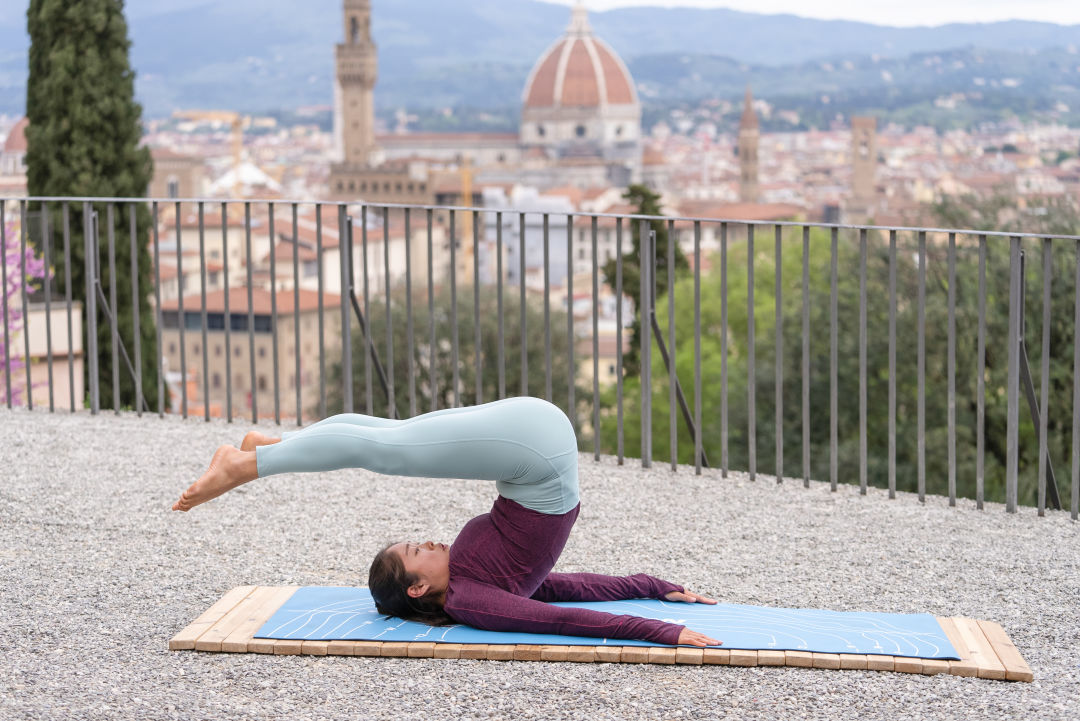
Explore Hydrow’s library of Pilates workouts from around the world.
10. High-intensity interval training (HIIT)
High-intensity interval training (HIIT) is a type of cardio exercise that involves intervals of intense work alternating with rest. It’s an efficient way to exercise because you work very hard in a short amount of time.
HIIT workout routines are also highly customizable, so you can choose any exercise and make the intervals any amount of time that works for you. For example, complete one minute of jumping jacks and 30 seconds of rest. Repeat as many times as needed or add other exercises to make it interesting.
11. Tabata
Tabata is an even more intense version of HIIT that strengthens your heart and lungs, and builds muscular endurance. The key to Tabata is to make the work intervals very, very intense. Tabata is also ideal when you’re traveling because you can do it with no equipment, in a small space, in a short amount of time.
Each Tabata round is only four minutes and consists of eight intervals of 20 seconds of work followed by 10 seconds of rest.
12. Jumping rope
Jumping rope may remind you of childhood playgrounds, but it’s also a quality cardio workout that’s portable and inexpensive. Jump rope workouts are also highly customizable, so consider starting with a slow, steady warm-up, followed by intervals of faster, higher-intensity jumping and a cool-down.
When choosing a rope, look for one with a bit of weight to it with comfortable handles that rotate easily. To choose the right length, stand on the middle of the rope and pull the handles up. They should hit around the middle of your sternum.
13. Dancing
Dancing is a surprisingly effective workout and includes anything from rocking out in your living room to ballroom dance classes. Dancing enhances cardiovascular health, flexibility, and balance. It’s also a great stress reliever.
Zumba is one of the most popular dance-style exercises, but if that’s not your thing, there are plenty of others like hip-hop, Latin, or ballet.
14. Aerobics
Aerobics might make you think of leg warmers and leotards, but it’s a good cardio workout that’s easily adjustable for the intensity you need. It involves combinations of rhythmic steps and moves, usually to music and sometimes involving props like a step.
In-person and on demand classes are available everywhere, and all you need is a supportive pair of shoes.
15. Boxing and kickboxing
Boxing and kickboxing are challenging, whole-body workouts that enhance strength and cardio fitness. You can find plenty of boxing simulation or kickboxing workouts online and on demand if in-person classes aren’t an option.
If you’re interested in a heavy bag at home, a few things to consider are:
Choose between a freestanding or hanging bag.
Allow plenty of clearance around the bag.
A 75- to 100-pound bag is suitable for beginners.
You’ll need gloves and possibly wrist straps.
16. Climbing
Indoor climbing gyms are becoming increasingly popular, and for good reason. Climbing builds full-body strength, promotes flexibility, and enhances focus. Many climbing gyms include bouldering options, which are shorter walls you can climb without ropes. It might sound intimidating, but climbing is easy to learn!
What to know before you go:
Wear comfortable clothes.
If you’re new, the gym will give you an orientation.
Be prepared to rent shoes and a harness if you’re rope climbing.
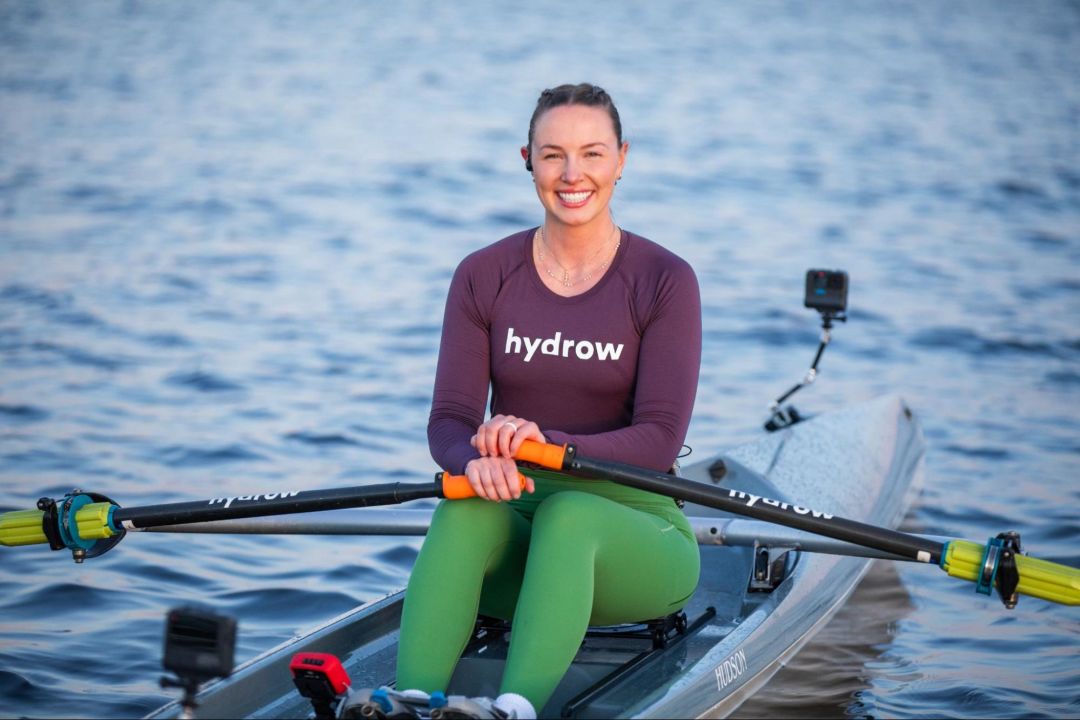
Did you know?
Over 90% of Hydrow members are still active one year later.
17. Tai Chi
Tai Chi is an exercise involving slow, gentle motion and breathing. It promotes good balance, coordination, and muscular strength and can reduce stress and anxiety. The low intensity and slow movement is good for all ages and fitness levels.
You can easily find online or in-person Tai Chi classes with qualified instructors. However you choose to practice, focus on mindfulness and gentle breathing for the most benefit.
18. Barre
Barre is an exercise class incorporating elements of ballet using a ballet barre. It's a low-impact, full-body workout that works the core and supports good posture. Beginner classes help you learn foundational exercises and a ballet background is not necessary.
What to expect:
You will likely be in socks or bare feet. Each studio has its own policies.
Classes may consist of barre work and mat work.
Instructors provide hands-on guidance to help you learn different positions.
19. CrossFit
CrossFit is very popular for its high-intensity, functional workouts. Every class has a Workout of the Day that changes every day so you are constantly varying your exercise. CrossFit workouts can be done at home, but the supportive atmosphere at the gym is part of its appeal.
What to know before you go:
Wear flat gym shoes.
Reserve your class spot. Many gyms limit participation so coaches can give individualized support.
Track your scores after class to monitor your fitness progress.
20. Circuit training
Circuit training is a workout that rotates you through a series of exercises with no rest in between. It can involve strength exercises as well as cardio exercises. Intervals can be timed or a set number of repetitions. The intensity is adjustable to suit your needs, and it can be done with minimal equipment.
Popular circuit training exercises include:
Push-ups
Step-ups
Squats
Planks
Lateral lunges

Explore Hydrow’s library of Circuit Training workouts from around the world.
Get your new fitness routine started with Hydrow!
The fitness world is full of great options and there is something for everyone. Experiment and try new things to find what you enjoy.
Looking for a smarter way to exercise? Rowing activates 86% of your muscles with every stroke, making it one of the most efficient ways to build total-body strength. In just 20 minutes on a rowing machine, you can get a full-body workout that boosts energy, builds endurance, and helps you move better—on and off the rower.
And with Hydrow, it’s easier than ever to stay consistent. No commute. No waiting for machines. Just expert-led workouts you can do from home, whenever it works for you. Choose from rowing, strength training, mobility, yoga, Pilates, and circuit training workouts, all designed to help you move better and feel stronger, long-term.
Our workouts are filmed on location in stunning waterways around the world and led by world-class Athletes who coach you through every stroke and rep. And with over 5,000 workouts ranging from beginner to advanced, it’s easy to keep progressing no matter your level.
Every movement adds up. Start building strength that lasts with Hydrow.
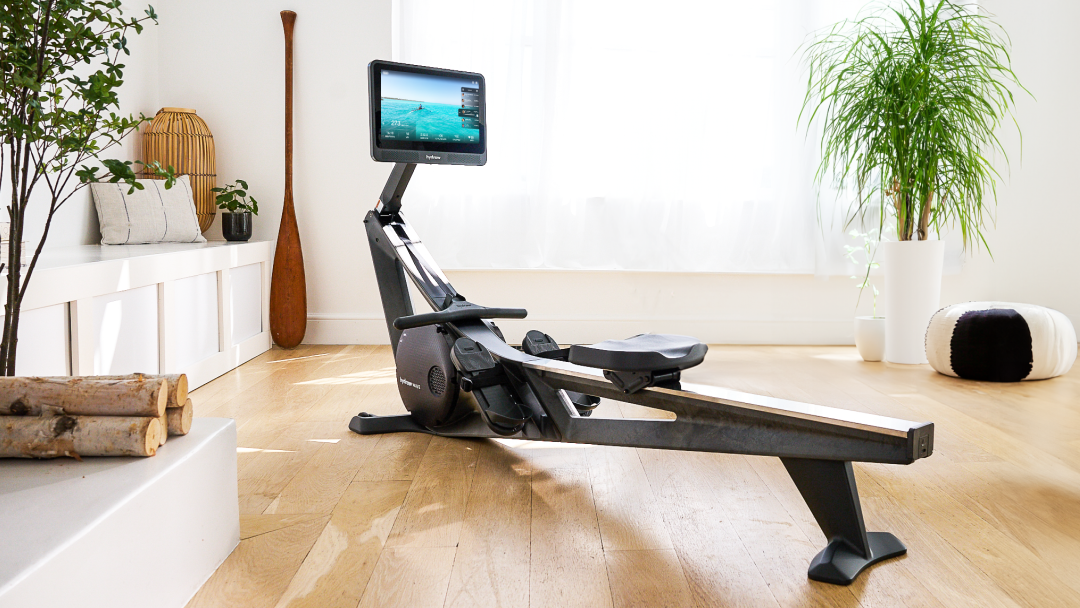
Real strength keeps moving
Learn how working out with Hydrow can help support a fuller, more active life.
